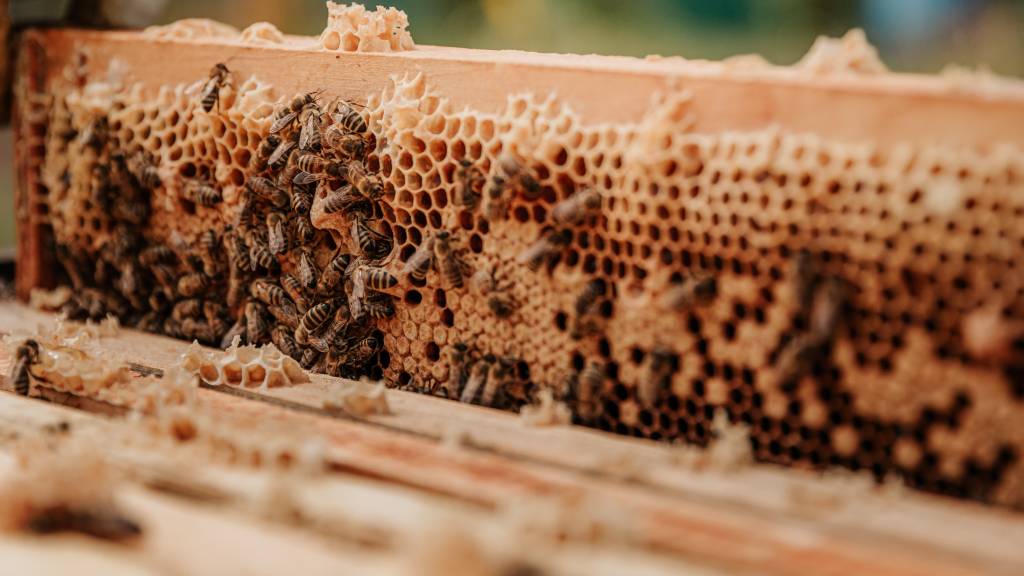Ulrich Schroeders | Psychological Assessment
Bee Swarm Optimization (BSO)
 “Bees are amazing, little creatures” (Richardson, 2017) – I agree. Bees have fascinated people since time immemorial, and yet even today there are still novel and fascinating discoveries (see the PLOS collection for some mind-boggling facts). Although bees as an insect species might seem as the prime example of state-building insects, highly social forms of community are the exception among bees. The large majority of all bee species are solitary bees or cuckoo bees that do not form insect states.
“Bees are amazing, little creatures” (Richardson, 2017) – I agree. Bees have fascinated people since time immemorial, and yet even today there are still novel and fascinating discoveries (see the PLOS collection for some mind-boggling facts). Although bees as an insect species might seem as the prime example of state-building insects, highly social forms of community are the exception among bees. The large majority of all bee species are solitary bees or cuckoo bees that do not form insect states.
Do the citations align with my research interests?
When citations are traded as the currency of science, it is difficult to estimate the price of a publication in advance or to understand it afterwards. One has the impression that precisely the topics that are frequently cited are those not in focus of one’s interest. In contrast, the work that one finds most interesting, might receive little attention. But maybe this perception is biased. To get a better understanding which articles are cited, I would like to give a short bibliometric evaluation of my google scholar citations in this post.
Age-related nuances in knowledge assessment - Much ado about machine learning
 This is the third post in a series on a paper — “Age-related nuances in knowledge assessment” — we recently published in Intelligence. The first post reflected on how knowledge is organized, the second post dealt with psychometric issues. This post is going to be more mathematical (yes, there will be some formulae) and it will be a cautionary note on the use of machine learning algorithms. Machine learning algorithms have positively influenced research in various scientific disciplines such as astrophysics, genetics, or medicine. Also, subdisciplines in psychology such as personality science (e.g., Stachl et al., 2020) or clinical research (Cearns et al., 2019) are adapting the new statistical tools. However, as pointed out in my research statement, every new method initially bears the risk of applying new techniques without the necessary background knowledge. I mainly blame statistical and methodological courses in psychology studies for this. We really have to teach math, stats, and methods more rigorously in university teaching, especially in structured PhD programs.
This is the third post in a series on a paper — “Age-related nuances in knowledge assessment” — we recently published in Intelligence. The first post reflected on how knowledge is organized, the second post dealt with psychometric issues. This post is going to be more mathematical (yes, there will be some formulae) and it will be a cautionary note on the use of machine learning algorithms. Machine learning algorithms have positively influenced research in various scientific disciplines such as astrophysics, genetics, or medicine. Also, subdisciplines in psychology such as personality science (e.g., Stachl et al., 2020) or clinical research (Cearns et al., 2019) are adapting the new statistical tools. However, as pointed out in my research statement, every new method initially bears the risk of applying new techniques without the necessary background knowledge. I mainly blame statistical and methodological courses in psychology studies for this. We really have to teach math, stats, and methods more rigorously in university teaching, especially in structured PhD programs.
Age-related nuances in knowledge assessment - A modeling perspective
 This is the second post in a series on a recent paper entitled “Age-related nuances in knowledge assessment” that we wrote with Luc Watrin and Oliver Wilhelm. The first post dealt with the way how we conceptualize the organization of knowledge in a hierarchy in a multidimensional knowledge space. The second post reflects on the way we measure or model knowledge. In textbooks knowledge assessments have a special standing, because they can be modeled both from a reflective and a formative perspective.
This is the second post in a series on a recent paper entitled “Age-related nuances in knowledge assessment” that we wrote with Luc Watrin and Oliver Wilhelm. The first post dealt with the way how we conceptualize the organization of knowledge in a hierarchy in a multidimensional knowledge space. The second post reflects on the way we measure or model knowledge. In textbooks knowledge assessments have a special standing, because they can be modeled both from a reflective and a formative perspective.
Age-related nuances in knowledge assessment - A hierarchy of knowledge
 We published a new paper entitled “Age-related nuances in knowledge assessment” in Intelligence. I really like this paper because it deals with on the way we assess, model, and understand knowledge. And, btw, it employs machine learning methods. Thus, both in terms of content and methodology it hopefully sets a stage for future research avenues that are promising to follow up on. I would like to cover some of the key findings in a series of blog posts. This first post deals with knowledge at different levels of granularity, how they relate to age, and the recurring finding that item sampling plays an important role in test compilation.
We published a new paper entitled “Age-related nuances in knowledge assessment” in Intelligence. I really like this paper because it deals with on the way we assess, model, and understand knowledge. And, btw, it employs machine learning methods. Thus, both in terms of content and methodology it hopefully sets a stage for future research avenues that are promising to follow up on. I would like to cover some of the key findings in a series of blog posts. This first post deals with knowledge at different levels of granularity, how they relate to age, and the recurring finding that item sampling plays an important role in test compilation.